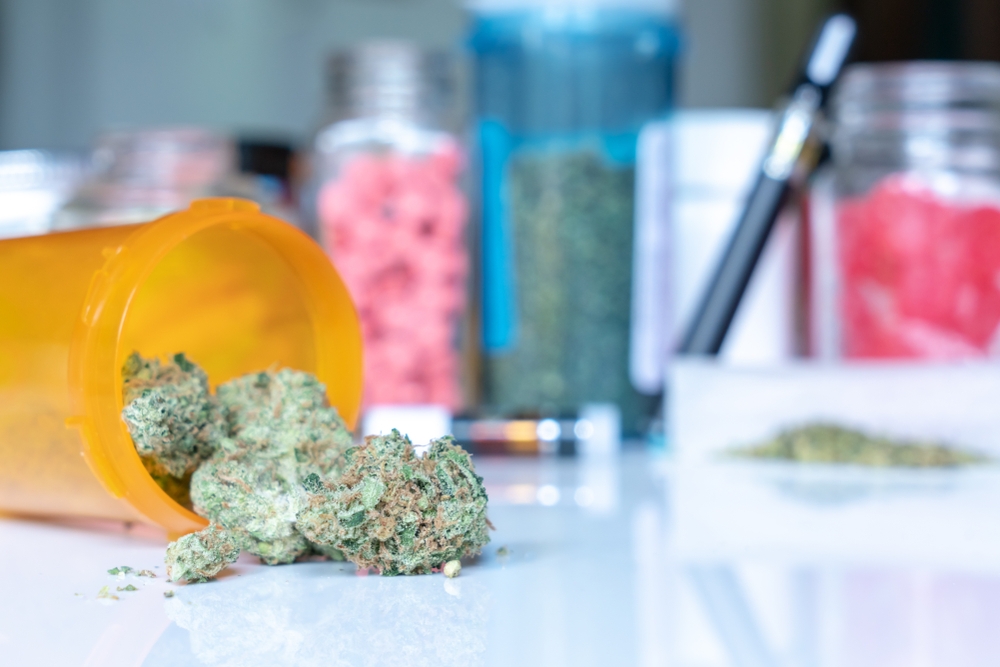
Learn the real risks of being charged with cannabis possession in NJ, even after legalization. Here's what to know in 2025.
If you were recently stopped by police and found with a THC vape pen or marijuana edibles in New Jersey, you might be asking yourself: Could I actually face legal trouble for this? After all, didn’t New Jersey legalize marijuana?
At Attorneys Hartman, Chartered, we’ve spoken to countless clients across the state who were shocked to face charges for cannabis-related items they genuinely believed were legal. But with cannabis laws continuing to evolve and enforcement happening at the state, local, and even federal levels, many people don’t realize their actions could still lead to arrest.
In this post, we’ll explain exactly what the law says about THC vapes and edibles in New Jersey as of 2025, who can still be charged, and what to do if you find yourself facing criminal or municipal charges.
Is Marijuana Legal in New Jersey? Yes, But Only Under Certain Rules
New Jersey legalized adult-use cannabis in 2021, but that doesn’t mean people can use or carry it without limits. The state established a tightly regulated framework that controls:
- Who can legally possess cannabis
- How much an individual can carry
- Where and how it can be used
- What forms are legal for sale, possession, and consumption
Adults age 21 and over may legally possess up to six ounces of usable cannabis or its equivalent in edibles, concentrates, or vape cartridges. This total applies across all product types combined.
When purchasing from licensed dispensaries, adults are subject to transaction limits of:
- One ounce of dried flower
- Four grams of concentrates or vape oil
- Up to 1,000 milligrams of THC in edibles
Possessing more than the legal amount, or being found with cannabis products that can’t be traced to a licensed New Jersey dispensary, may lead to criminal charges under N.J.S.A. 2C:35-10 and related statutes.
What the Law Says About THC Vape Pens and Edibles in 2025
Edibles (Gummies, Chocolates, Lozenges, Pills)
As of August 2025, edible cannabis products like gummies, chocolates, lozenges, and pills are legal in New Jersey only if purchased from licensed dispensaries. These products are tightly regulated and must:
- Contain no more than 10 milligrams of THC per serving
- Be shelf-stable (not baked goods or perishable foods)
- Be sold in clearly labeled, tamper-evident, and child-resistant packaging
If you’re found with edibles that exceed legal limits, don’t meet packaging requirements, or were purchased online or out of state, you may face serious consequences, including:
- Unlawful possession of a controlled dangerous substance (CDS)
- Possession with intent to distribute, depending on the quantity or packaging
- Increased penalties if possession occurs near schools, parks, or other drug-free zones
Important: Even professionally packaged edibles are illegal if they weren’t purchased from a licensed New Jersey dispensary.
THC Vape Pens and Cartridges
Vape products, often referred to as carts, vape pens, or dab pens, are legal only if they’re purchased from a licensed New Jersey dispensary and entered into the state’s tracking system.
Products bought on the street or online often come from unregulated sources and may contain harmful contaminants or illegal concentrations of THC.
Possessing an unregulated or counterfeit THC vape can result in:
- Disorderly persons offenses
- CDS possession charges under N.J.S.A. 2C:35-10
- Additional penalties if found during a traffic stop, near minors, or in a restricted zone
Important: A vape cartridge must be verifiable through New Jersey’s cannabis tracking system. If it cannot be traced, you may still be charged, even if the product looks legitimate.
Can You Be Charged If You’re Under 21 or Sharing With Friends?
Yes. Cannabis possession is still prohibited for anyone under 21 in New Jersey, including vapes and edibles. Possible penalties include:
- Written warnings
- Civil fines
- Referral to diversionary programs
Also, sharing cannabis can lead to distribution charges. This is especially risky if:
- You pass around gummies or vape pens at a party
- You are found with multiple containers or packages
- The person you share with is underage
What If Police Found THC Edibles or a Vape During a Traffic Stop?
This is one of the most common scenarios we handle at Attorneys Hartman, Chartered. If police stop your vehicle and smell marijuana or see cannabis products in plain view, they may try to conduct a search, even though under updated state law, the odor of marijuana alone is not enough to establish probable cause.
You could face charges if THC products are:
- Not stored in a sealed, clearly labeled container
- Stored within reach of the driver or passengers
Depending on the situation, you may be cited for:
- Possession in a motor vehicle
- Cannabis open container violations
- Driving While Intoxicated (DWI), if impairment is suspected
To comply with New Jersey law, cannabis must be sealed, labeled, and stored in your trunk or a locked glove compartment. Just like alcohol, improper storage alone can lead to charges, even if there is no sign of use or intoxication.
Common Misunderstandings About Edibles and Vapes in NJ
Legalization has created confusion. Many people unintentionally break the law due to misconceptions. Here are four common myths:
Myth 1: I bought it legally in another state, so I’m fine.
Reality: Only cannabis from licensed New Jersey dispensaries is legal. Products from out-of-state or online sellers are not permitted.
Myth 2: It’s just a gummy.
Reality: If the gummy contains THC and didn’t come from a licensed New Jersey dispensary, it’s considered an unregulated controlled substance.
Myth 3: They can’t prove what’s inside my vape.
Reality: Law enforcement can and often does send vape cartridges for lab testing. Confirmed THC content can result in formal charges.
Myth 4: If I’m not high, I can’t get a DWI.
Reality: New Jersey law allows DWI charges based on THC presence and observed impairment, even if you don’t “feel” high.
What to Do if You’ve Been Charged for Possessing a THC Vape or Edibles
A cannabis-related charge doesn’t define your future, especially if you take swift action and understand your rights. At Attorneys Hartman, Chartered, we help clients explore all available defenses, including:
- Challenging the legality of the search or traffic stop
- Contesting whether the substance was properly identified as cannabis
- Investigating lab testing issues or gaps in the chain of custody
- Seeking conditional discharge or diversion programs for eligible first-time offenders
Each case is different. Early legal intervention can make a significant difference in the outcome.
Takeaways: Can You Still Be Arrested for THC Vapes or Edibles in NJ?
Yes, even in 2025, you can still be arrested in New Jersey for possessing THC vape products or cannabis edibles if:
- They weren’t purchased from a licensed New Jersey dispensary
- You exceed the personal possession limits
- You carry or use them in a restricted area
- You share them with others, especially anyone underage
These rules may come as a surprise, but misunderstanding the law won’t prevent charges from being filed. If you’re facing allegations involving edibles or vapes, working with an experienced defense attorney can help you challenge the charges, protect your rights, and pursue the best possible outcome.
Charged with a THC Vape or Edible Offense in New Jersey? Let’s Talk.
Whether you're facing charges in municipal court, county court, or under federal investigation, Attorneys Hartman, Chartered is ready to help. We represent clients across Burlington, Camden, Gloucester, Cumberland, and Mercer Counties, including cities like Cherry Hill, Mount Laurel, Vineland, Ewing, and Deptford.
From minor possession to more serious allegations, we bring decades of experience to every case. We’ll walk you through your legal options, defend your rights, and fight for the best possible outcome without judgment or pressure.
Contact us today to schedule a free and confidential consultation. Let’s build your defense together.
Disclaimer: This blog post is for informational purposes only and does not constitute legal advice. Reading this content does not create an attorney-client relationship. Every case is different, and legal outcomes vary based on individual facts and circumstances. For legal advice, please contact Attorneys Hartman, Chartered directly.
